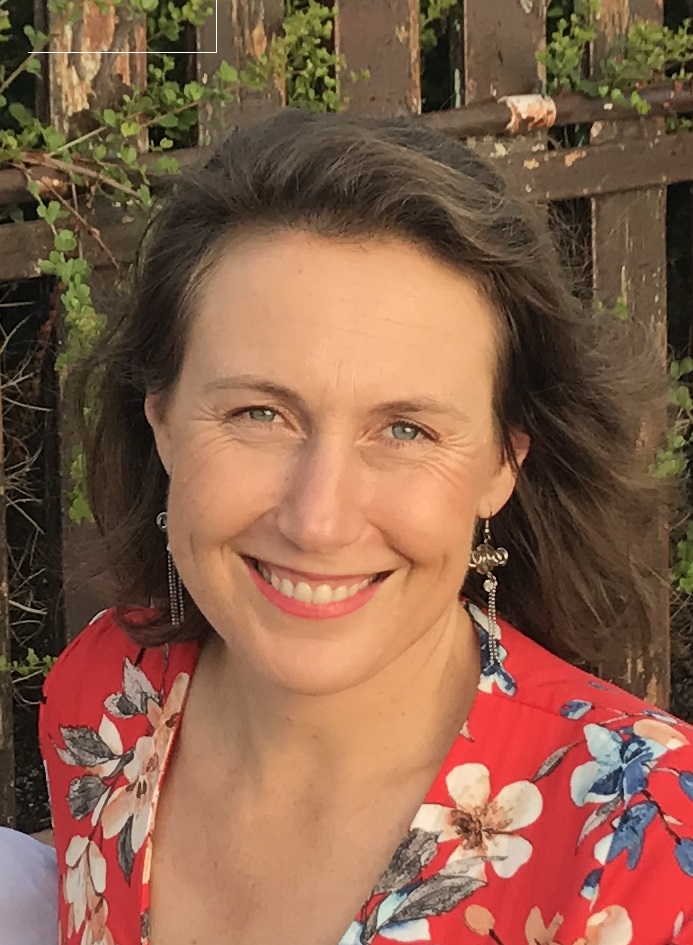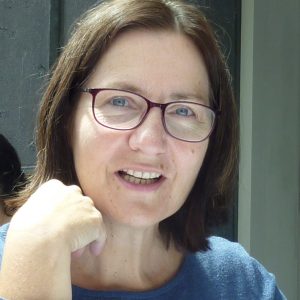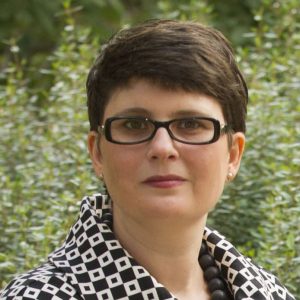
Women in Asia Conference 2021
Fashioning Gender in Asia
23 – 26 November 2021
La Trobe University
La Trobe Asia Public Lecture

Join us for the La Trobe Asia Public Lecture given by:
Associate Professor Shelley Marshall
Director, RMIT Business and Human Rights Centre
RMIT University
Tuesday 23 November, 2021
5:30 – 6:30pm
Online
Surviving Covid-19 and a military coup as a garment worker:
How empirical studies of the experience of gendered garment production networks can fashion regulatory strategies of solidarity in the Economic-North.
Garment workers in Myanmar and Thailand are presented in starkly contrasting ways in the media: as downtrodden, oppressed workers toiling to produce cheap clothes for consumers in the West; and, as militant defenders of democracy against a military coup and illiberalism. Which one is true? And which should inform the types of regulatory strategies developed in the Economic-North to improve the conditions of these workers?
This paper is concerned with how, as women in the Economic-North, we can understand the experience of female garment workers in Thailand and Myanmar and conceive of our relationship with them via global garment production networks. It draws on empirical research conducted throughout the pandemic and the military coup in Myanmar, and participatory action research conducted in Thailand with garment workers and regulators prior to the pandemic. From this empirical starting point of perceptions, ambitions and tribulations shared by garment workers, it considers forms of ‘regulatory solidarity’. How can laws and policies in Australia and other countries in the Economic-North best contribute to improving the working conditions of these workers? Is the Modern Slavery Act and mandatory human rights due diligence as good as it gets, or can we do better by these women?
About the 2021 Conference
Fashioning Gender in Asia builds on past Women in Asia conferences and the Women’s Forum of the Asian Studies Association of Australia to further research on gender in the Asian region. The conference explores how gender, sexuality and bodies; objects, culture and memory; citizenship, geography and economy, and technology, media and mobility intersect and entwine in the very fabric of gendered personhoods in/of Asia.
The conference will open with a Public Lecture on Tuesday 23 November, supported by La Trobe Asia, and conclude with a Postgraduate and Early Career Researcher workshop on writing for publication on Friday 26 November. More information on these events to follow shortly.
This year’s WIA conference offers a blended conference experience, one that moves away from the either/or of online or place-based conferences. All sessions and presentations will be available in an online format, so it is possible to present and attend fully online.
Social Hubs
For many delegates, the social and networking aspects of conferences are also very important. For this reason we seek to establish social hubs in a number of Australian and Asian universities – including at La Trobe University’s City Campus. Our aim is to create spaces for informal conversations to facilitate knowledge sharing and production over light refreshments.
We welcome expression of interests if your university would like to host a social hub. For further information regarding the organisation of social hubs, please contact Dr Wendy Mee (w.mee@latrobe.edu.au).
Conference Themes
Presentations are invited in line with five streams:
Fashioning the Body – art, culture, embodiment
Convenors: Dr Emerald L. King (University of Tasmania) and Dr Monika Winarnita (Deakin University)
In the age of Instafame and TikTok-influencers it is easy to view fashion as something trivial or fleeting. In this stream we encourage contributors to look at fashion seriously, and from all angles – from the latest trends to the construction of bodies and identity.
With much of the world’s textile and clothing production located in Asia this stream lends itself to a wide range of papers across all aspects of ‘fashion’, such as the slow fashion movement, garment construction, haute couture, cosplay and ‘bounding,’ and gender expression through clothing.
‘Fashion’ also refers to the manner in which something is done, or how things are created. From this perspective, we welcome papers that engage with how bodies are re-fashioned, for example, through body modifications, surgical tourism, tattooing and piercing. Questions asked in this stream are: How is gender fashioned in Asia? What lies behind the textile industry? How are bodies shaped, changed and constructed?
For further information, please contact Emerald King (emerald.king@utas.edu.au) or Dr Monika Winarnita (monika.winarnita@deakin.edu.au)
Borders Frayed/Reinforced – nation, citizenship, mobility
Convenors: Associate Professor Sallie Yea (La Trobe University) and Dr Wendy Mee (La Trobe University)
Transnational mobility within and beyond Asia reveals the personal, social, economic and political significance of borders and citizenship in shaping the contours and conditions of (im)mobility. The implications for gender are profound: not only are nations, borders and mobility gendered, but also gender roles and identities can be transformed or reified during cross-border mobility projects, while the presence of mobile gendered subjects can challenge and disrupt bordering processes and citizenship norms. Much mobility occurs in grey zones of legality and citizenship, resulting in additional gender-based consequences for migrants who are stateless or participate in illicit forms of migration.
The Frayed/Reinforced Borders stream welcomes presentations examining the gender causes and consequences of border crossings and bordering practices for Asian migrants and their communities. As well as research on the interstices between borders and mobility and the lives of women in/of Asia, we welcome comparative research relating to transnational mobilities of men and non-binary gender identified migrants.
For more information, please contact Sallie Yea (s.yea@latrobe.edu.au) or Wendy Mee (w.mee@latrobe.edu.au)
Stitched Together – law, human rights and social justice
Convenors Associate Professor Kerstin Steiner (La Trobe University) and Dr. Dina Afrianty (La Trobe University)
Human rights protection in Asia is a threadbare patchwork quilt. It has become even more unstitched in recent years with challenges arising from governments, the encroachment on basic freedoms and continuing social conservatism. The COVID pandemic has added further complexity to the lives of women in Asia. Women are frequently seen as being subject to larger forces, but recognition should also be given to their capacity to engage dynamically with their legal and human rights context. Particular attention needs to be paid to women as leaders in their communities.
The Stitched Together stream invites submissions addressing the role of women in, or the impact on the status of women of, contemporary developments in law, human rights and social justice. The sub-themes identified above provide an indicative guide only as to topics. Submission might address individual issues or explore commonalities or relationships between issues in the theme overall.
For further information please contact Kerstin Steiner (k.steiner@latrobe.edu.au) or Dina Afrianty (d.afrianty@latrobe.edu.au)
Digital Tapestries – technologies and relationships
Convenors: Dr Shashini Gamage (La Trobe University), Dr Wilasinee Pananakhonsab (Thammasat University, Thailand) and Associate Professor Raelene Wilding (La Trobe University)
The weaving of new technologies into intimate lives and relationships is ubiquitous, complex and contested. Digitised social networks, mediated relationships, reproductive technologies and new tools supporting datafication of the self are all contributing to the reconfiguration of gendered selves and of sexual, racial and ethnic identities. This stream invites contributions that illuminate the role of new technologies in the reimagining and reconditioning of new richly diverse tapestries of Asian womanhood. Possible themes and threads range from the role of new technologies in reproducing and challenging intimate, everyday gendered relations of care, support and intimacy, through to the policies, social structures and infrastructural contexts that shape unequal access to online and technological environments. What are the obstacles faced by individuals seeking to apply technologies to expanding their relational worlds and sense of self? And how do people resist, transform and navigate those obstacles to achieve their own visions of life’s rich tapestries?
For further information, please contact Raelene Wilding (r.wilding@latrobe.edu.au)
Materialities – economy, work, education, welfare
Convenors: Dr Jasvir Nachatar Singh (La Trobe University), Dr Doria Abdullah (Universiti Teknologi Malaysia) and Professor Kaori Okano (La Trobe University)
Economic trends, workplace characteristics, educational opportunities and socioeconomic status are some of the key material factors that structure the construction gender and the experience of gender inequality in Asia, as elsewhere. Throughout Asia, socioeconomic status is also strongly correlated with gender differences in terms of personal wealth, health outcomes, educational achievement, political participation, household relations and interpersonal power. In addition, the confronting realities of conflict, political repression, environmental disaster and the impact of the COVID-19 pandemic have added to the urgency of studying the complex interrelationship between gender and multiple dimensions of socioeconomic status.
The Materialities stream invites submissions from researchers exploring the dynamic relationship between socioeconomic factors and gender relations in Asia and the global Asian diaspora. The Women In Asia conference has a special interest in the conditions shaping Asian women’s lives. Nevertheless, submissions that investigate the material realities of diverse gender identities in Asia are most welcome.
For further information, please contact Dr Jasvir Nachatar Singh (J.NachatarSingh@latrobe.edu.au) or Professor Kaori Okano (k.okano@latrobe.edu.au)
Conference Organisers




Contact
For further information and updates, contact:
Dr Wendy Mee (w.mee@latrobe.edu.au) and Dr Emerald L King (emerald.king@utas.edu.au)